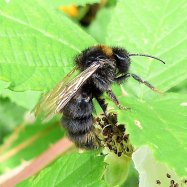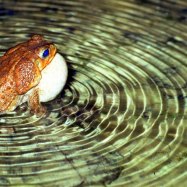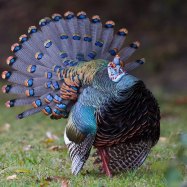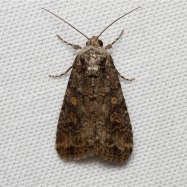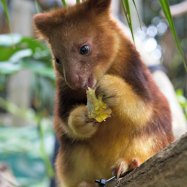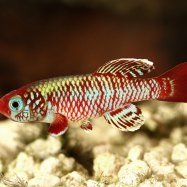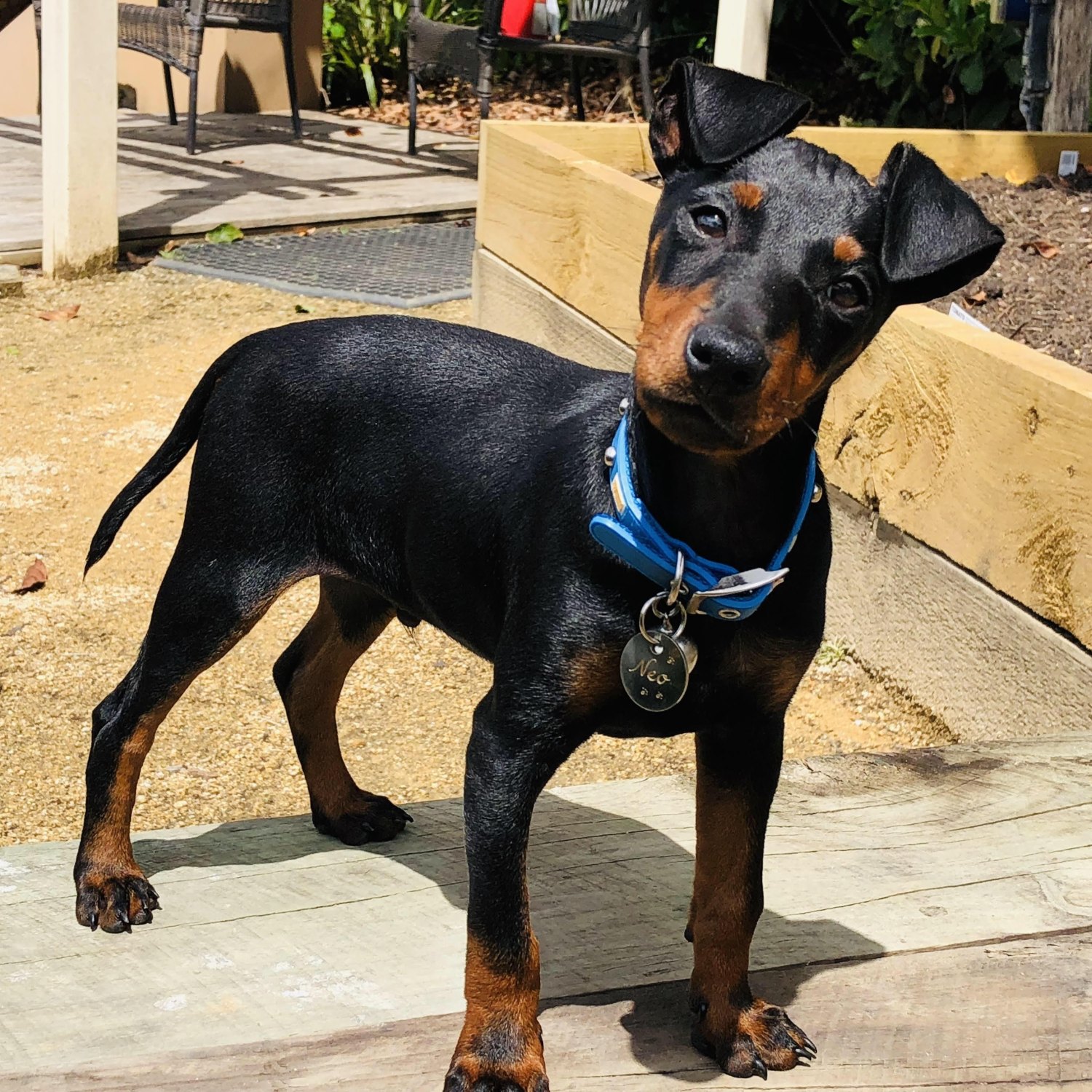
Manchester Terrier
15-16 inches
The Manchester Terrier is a beloved member of the Canidae family, known for its compact and muscular body shape. With an average length of 15-16 inches, this urban-friendly pup is perfect for city dwellers. Consider adding this friendly and energetic breed to your home!
Animal Details Summary:
Common Name: Manchester Terrier
Kingdom: Animalia
Habitat: Urban
The Smart and Sleek Manchester Terrier: A Perfect Companion for Urban Living
The Manchester Terrier, also known as the Manchester Black and Tan Terrier, is a breed of dog that is believed to have originated in England. They are a popular choice for those living in urban areas, thanks to their compact size, friendly nature, and low maintenance requirements. In this article, we will explore the fascinating characteristics of the Manchester Terrier and why they make a great addition to any urban household.A Royal Heritage
The history of the Manchester Terrier can be traced back to the 19th century, where they were bred to hunt rats in the booming city of Manchester, England Manchester Terrier. They were also used for rabbit coursing, as well as participating in rat-catching contests, where their speed and agility were put to the test. In fact, this breed is believed to be a cross between a Whippet and a Black and Tan Terrier, resulting in a dog that is both fast and fearless.A Regal Appearance
The Manchester Terrier boasts a distinct black and tan coat, making them look elegant and regal. Their smooth, shiny coat is easy to maintain, requiring only occasional brushing to keep it looking its best. They have a compact and muscular body, with a length of 15-16 inches and weigh around 12-22 pounds. This makes them a perfect size for small living spaces, making them an ideal choice for urban dwellers.A Social Butterfly
The Manchester Terrier is not only a good-looking breed but also possesses a charming personality. They are intelligent and love to be in the company of their owners, making them great companions for city dwellers. They are playful and energetic, always up for a game of fetch or a walk around the neighborhood Maltese. Their high energy levels make them a perfect choice for active individuals and families with children.An Easy to Train Companion
Due to their intelligence and eager-to-please nature, Manchester Terriers are relatively easy to train. They respond well to positive reinforcement and love to learn new tricks and commands. This makes them a popular choice for first-time dog owners living in an urban setting, as they can be easily trained to adapt to apartment living and apartment rules.Feeding and Exercise Needs
Being descendants of hunting dogs, the Manchester Terrier is a carnivorous breed that thrives on a diet rich in protein. Their meals should consist of high-quality meat-based dog food, and they may also enjoy occasional treats like raw bones and vegetables. It is essential to monitor their food intake as they have a tendency to overeat, leading to potential health issues.When it comes to exercise, the Manchester Terrier requires daily physical and mental stimulation to keep them happy and healthy. This can include regular walks, playtime at the park, or a game of tug-of-war. As long as they get their required exercise, they are content to spend the rest of their day lounging on the couch with their beloved owners.
Living in an Urban Setting
The Manchester Terrier is a breed that thrives in urban environments. They are adaptable to apartment living and do not require a large backyard to run around in. However, it is essential to ensure they get enough exercise to keep them stimulated and prevent them from becoming destructive.These dogs also make great watchdogs due to their natural suspicion towards strangers. They may become vocal if they sense any threat, making them a great choice for urban dwellers looking for a little extra security. However, proper socialization from an early age is necessary to prevent them from becoming overly protective or aggressive towards visitors.
A Worldwide Popularity
The Manchester Terrier's charm and compatibility with urban living have earned it a worldwide following. It is a popular choice in many countries, including the United States, Canada, and Australia. Their easy-going nature and adaptability have also made them popular in households with other pets, including cats. However, it is always recommended to supervise interactions between different animals to ensure everyone's safety.A Partner for Life
The Manchester Terrier is a breed that forms a strong bond with its owner, making them a loyal and loving companion. They thrive on attention and love being a part of their owner's daily routines. This breed does not do well when left alone for extended periods, making them unsuitable for busy individuals who are away from home for long hours.In Conclusion
In summary, the Manchester Terrier is a charming and charismatic breed that is ideally suited for urban living. They are low maintenance, intelligent, and make great companions for individuals and families alike. With their royal appearance, sociable nature, and love for city living, these dogs make a perfect addition to any household. If you are considering adding a dog to your urban lifestyle, the Manchester Terrier should definitely be at the top of your list.

Manchester Terrier
Animal Details Manchester Terrier - Scientific Name: Canis lupus familiaris
- Category: Animals M
- Scientific Name: Canis lupus familiaris
- Common Name: Manchester Terrier
- Kingdom: Animalia
- Phylum: Chordata
- Class: Mammalia
- Order: Carnivora
- Family: Canidae
- Habitat: Urban
- Feeding Method: Carnivorous
- Geographical Distribution: Worldwide
- Country of Origin: England
- Location: Urban areas
- Animal Coloration: Black and tan
- Body Shape: Compact and muscular
- Length: 15-16 inches
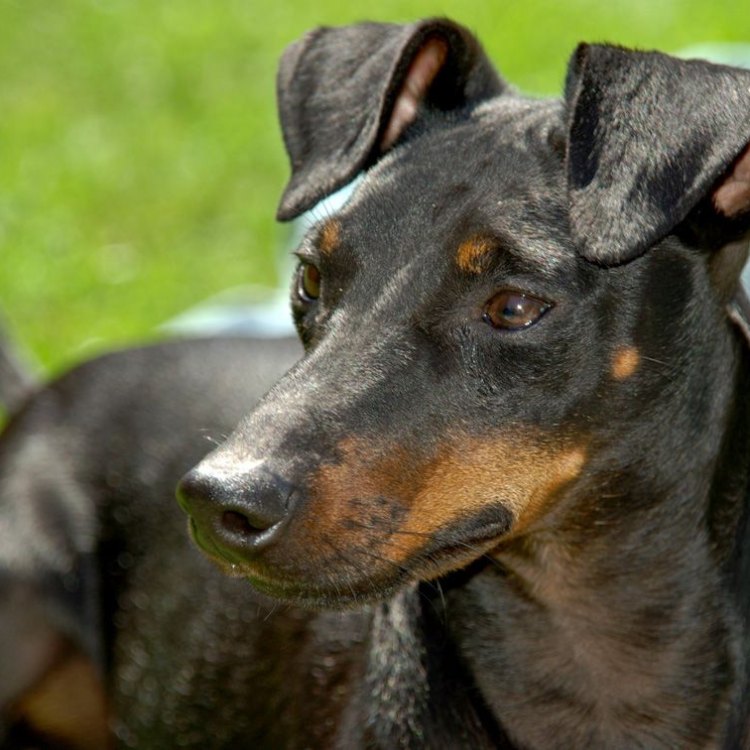
Manchester Terrier
- Adult Size: Small
- Average Lifespan: 13-15 years
- Reproduction: Sexual
- Reproductive Behavior: Year-round breeding
- Sound or Call: Barking
- Migration Pattern: Non-migratory
- Social Groups: Generally solitary
- Behavior: Alert, intelligent, and energetic
- Threats: None
- Conservation Status: Domesticated
- Impact on Ecosystem: None
- Human Use: Companion dog
- Distinctive Features: Distinctive black and tan coat markings
- Interesting Facts: Manchester Terriers were originally bred for ratting in England.
- Predator: No predators
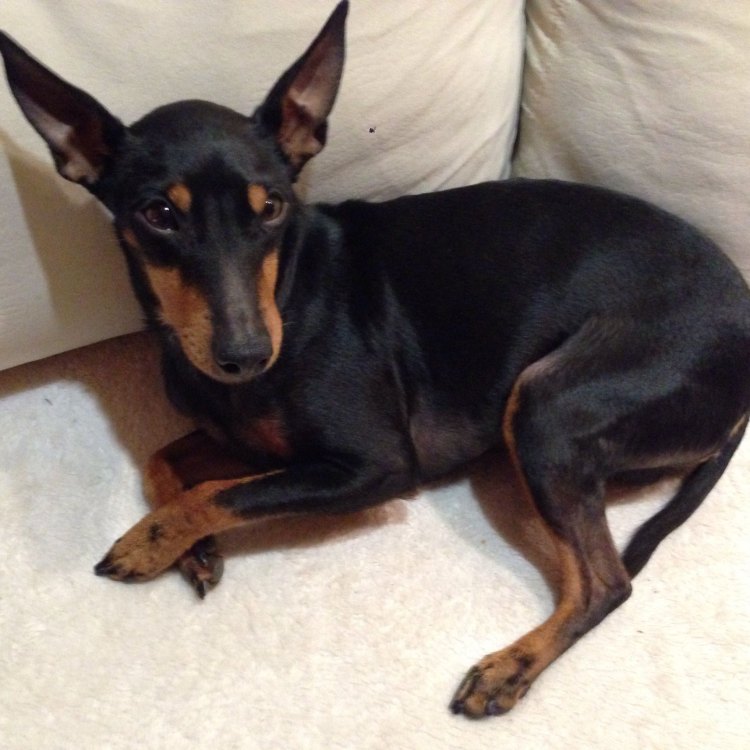
Canis lupus familiaris
The Mischievous Charm of Manchester Terriers: A Small Breed with a Big Personality
When it comes to dogs, we often think of the big, fluffy breeds like Golden Retrievers or the loyal and protective German Shepherds. But in the midst of these popular dog breeds, there is a small and charming breed known as the Manchester Terrier. This diminutive canine may be small in stature, but it makes up for it with its bold and energetic personality. From its distinctive coat to its mischievous nature, there's more to the Manchester Terrier than meets the eye PeaceOfAnimals.Com.Origins and Evolution of the Manchester Terrier
The Manchester Terrier has a long history that dates back to the 16th century in England. This breed was originally developed by crossing the Black and Tan Terrier with Whippets, creating a sturdier and faster dog for hunting rats. These dogs were used in rat pits, a popular underground sport during that time. The Manchester Terrier was also known for its ability to hunt small vermin and was a valuable asset in keeping homes and barns free from pests.In the early 19th century, the Manchester Terrier was further refined by crossing it with the Italian Greyhound to give it a sleeker and more refined appearance. This breed quickly gained popularity due to its rat-catching skills and began appearing in dog shows. The Kennel Club of England officially recognized the breed in 1887 and it was named after the city of Manchester, where it was immensely popular.
Distinctive Features that Set the Manchester Terrier Apart
One of the most notable features of the Manchester Terrier is its distinctive black and tan coat markings. These markings are often compared to those of a Doberman Pinscher, with a sleek black coat and tan points on its muzzle, chest, and lower legs Mealybug. This sleek and shiny coat requires minimal grooming, making it a low-maintenance breed to care for.Another distinctive feature of the Manchester Terrier is its small size. The average height for an adult Manchester Terrier is between 10-12 inches and it weighs around 12-22 pounds. This makes it a perfect companion dog for those living in apartments or small spaces. However, don't let its size fool you, as this breed is known for its high energy and playful nature.
Behavior and Reproduction of Manchester Terriers
Manchester Terriers are alert, intelligent, and energetic dogs. They crave stimulation and need regular exercise to keep them happy and healthy. These dogs love to play and enjoy activities like fetch, agility training, and long walks. They also have a strong prey drive, so it's important to keep them on a leash when outside to prevent them from chasing after smaller animals.In terms of reproductive behavior, Manchester Terriers are sexual and can reproduce year-round. They reach sexual maturity at around 8-12 months of age and have an average lifespan of 13-15 years. As for their communication, Manchester Terriers are not known for their vocalizations like some other breeds. However, they do have a tendency to bark, especially when bored or anxious.
Human Use and Threats to Manchester Terriers
Unlike many other dog breeds, Manchester Terriers have not had a specific purpose in human use throughout history. They were primarily kept as companion dogs and valued for their ability to hunt rats. Today, they are popular as family pets and excel in activities like obedience and agility competitions. However, their mischievous nature and intelligence can also lead them to become skilled escape artists if not trained and stimulated properly.One of the unique characteristics of the Manchester Terrier is that it has no natural predators, making it a relatively safe breed. They are also not considered a threat to any other species or ecosystems, as they were primarily bred for hunting small vermin. In terms of conservation status, the Manchester Terrier is considered a domesticated breed and does not face any threats in the wild.
The Manchester Terrier as a Companion Dog
Manchester Terriers are known for their loyal and loving nature, making them a great companion dog. They thrive on human companionship and make great family pets. However, it's important to note that due to their high energy levels, they may not do well with small children or other pets. They do best with an owner who can provide them with plenty of exercise and mental stimulation.If you're considering adding a Manchester Terrier to your family, it's important to do your research and find a reputable breeder. These dogs have a genetic predisposition to certain health issues, such as patellar luxation and glaucoma, so it's crucial to ensure that your puppy comes from a healthy bloodline. With proper care and attention, Manchester Terriers can make wonderful companions for many years.
Fun Facts About Manchester Terriers
- The Manchester Terrier was one of the first breeds to be recognized by the American Kennel Club (AKC) in 1886.- These dogs were popular as ratters on ships during the Industrial Revolution.
- Famous Manchester Terrier owners include Queen Victoria, President Theodore Roosevelt, and Charles Darwin.
- The Manchester Terrier was one of the first breeds to participate in agility competitions.
- Despite its name, the Manchester Terrier has never been popular in Manchester and instead gained popularity in other regions of England.
In Conclusion
In summary, the Manchester Terrier may be a small and often overlooked breed, but it has a rich history and unique features that make it stand out. From its sleek black and tan coat to its high energy and intelligence, the Manchester Terrier is a beloved companion and a skilled hunter. With a life expectancy of 13-15 years, these dogs have plenty of time to charm their owners and continue to bring joy and excitement to their households.
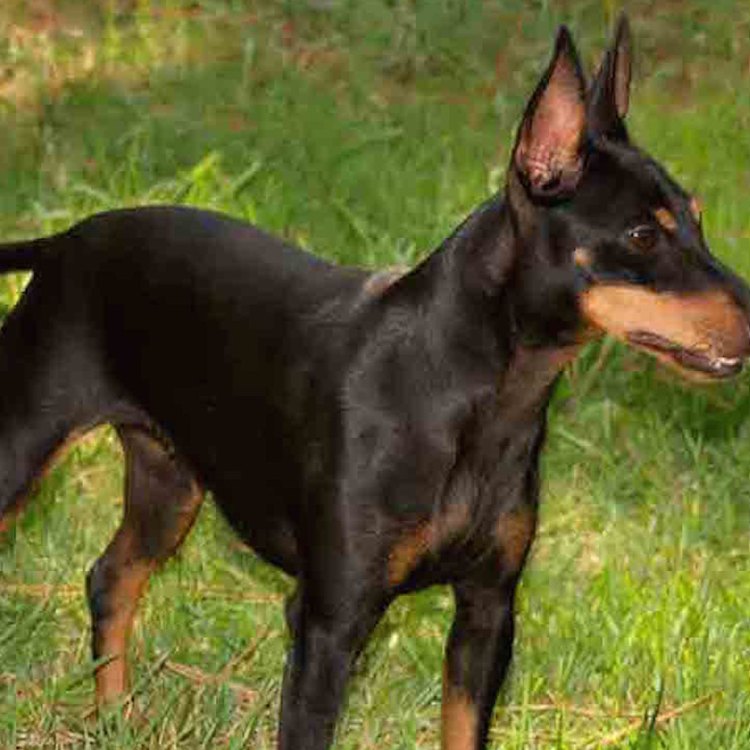
The Smart and Sleek Manchester Terrier: A Perfect Companion for Urban Living
Disclaimer: The content provided is for informational purposes only. We cannot guarantee the accuracy of the information on this page 100%. All information provided here may change without prior notice.


